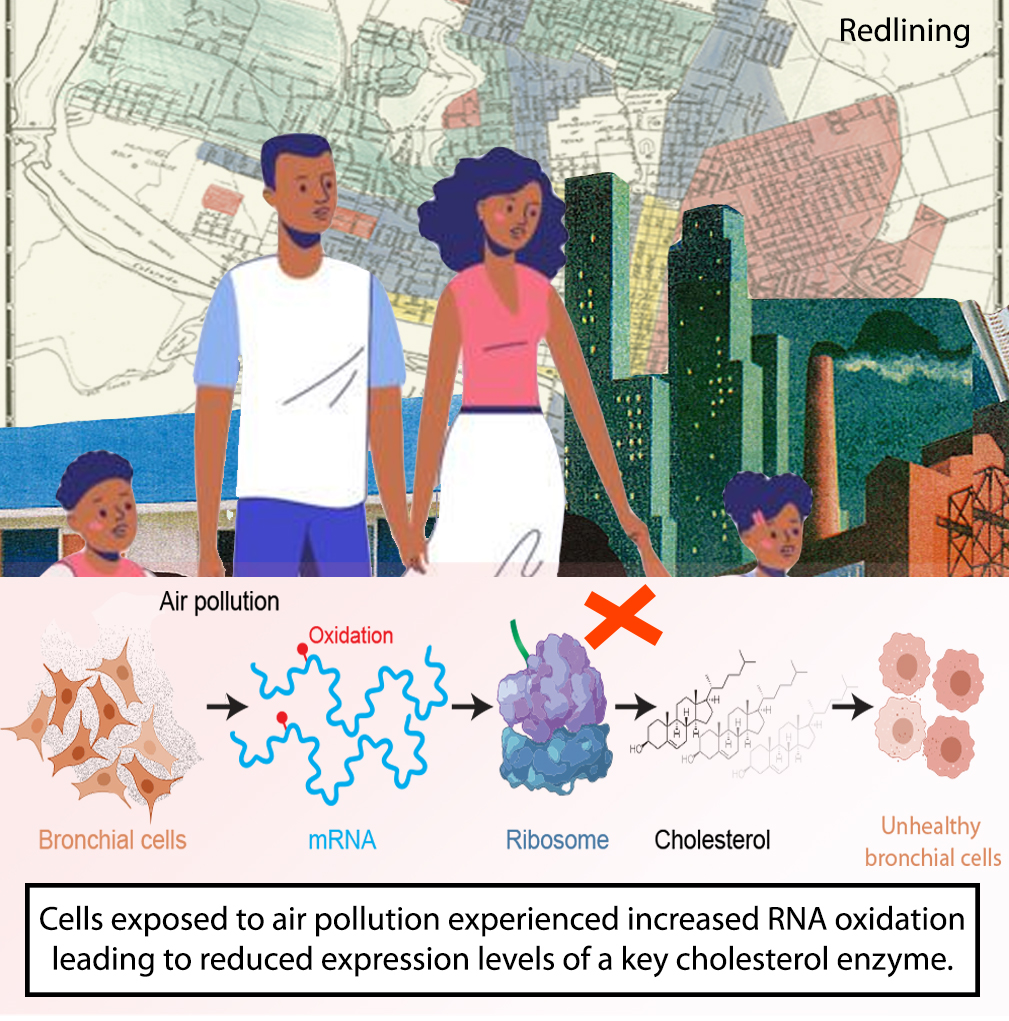It’s well known that poor air quality can lead to health problems. But research from the Cockrell School of Engineering at The University of Texas at Austin uncovers new information about how air quality issues can affect important processes in the body and details how people who live in polluted areas could be at greater risk for lung disease and other illnesses.
The research, published this week in Communications Biology, examines how pollution disrupts cells’ ability to regulate themselves. The team found that when cells are exposed to a combination of pollutants typically present in congested urban areas, genetic mechanisms that lead to cholesterol production are disrupted and cells are damaged in ways not captured by traditional markers. That deregulation of cells transforms how they interact with each other, and those interactions are key to keeping cells healthy.
The team looked for the first time at environmental-based changes to RNA molecules in bronchial epithelial cells that are critical for protection from hazardous pollutants. The finding that poor air quality can impact cholesterol regulation is important because disruption of that process increases risk of obesity, asthma, COPD and other adverse effects.
“Essentially, air pollution hurts cholesterol synthesis and that contributes to pulmonary diseases,” said Lydia Contreras, an associate professor in the McKetta Department of Chemical Engineering who led the study.

Poor air quality expedites oxidation to RNA molecules that are key in decoding important genes for cholesterol synthesis, a process essential for maintaining the integrity of human cells. Oxidation naturally occurs as people age, but when it happens due to pollution, it leads to organs that are essentially aging faster than they otherwise would. The research also identifies several genetic markers that could aid in the development of diagnostics and treatments for lung-related diseases.
Contreras teamed up with chemical engineering assistant professor Lea Hildebrandt Ruiz’s lab to utilize a state-of-the-art facility, where they exposed cells to two different mixtures of airborne pollutants for approximately 90 minutes, using an “air-liquid interface system” designed to mimic the respiratory tract. Most environmental studies focus on just single chemicals, but the team decided to use a mixture because it is more realistic of what people are exposed to in day-to-day life.
Contreras is part of a growing community of researchers that combine expertise in human health, down to the molecular and cellular level, with a focus on the impact of the surrounding environment. Contreras and her team of researchers have worked with Hildebrandt Ruiz and Elizabeth Matsui, director of clinical and translational research at UT’s Dell Medical School to further understand air pollution disparities in Texas and the impact on cellular mechanisms that affect health.
This research comes as the novel coronavirus continues to ravage the U.S. and takes a particularly strong toll on people with existing respiratory issues. A recent analysis found a link between areas of high air pollution and increased COVID-19 cases, hospitalizations and deaths.
“This finding is especially relevant for minority communities that face pollution disparities due to historic redlining,” Contreras said.
A recent study that included researchers from the Cockrell School found that minority communities bear disproportionate impacts of air pollution. Contreras notes that those communities tend to live closer to sources of pollution such as highways and waste facilities.
“Many people already have hidden conditions, and then you add environmental risk factors that also contribute to health,” Contreras said. “Those underlying issues make you less successful in fighting off any respiratory disease.”
For more updates on this ongoing research, follow the Contreras research group on Twitter at @Contreras_Lab.
